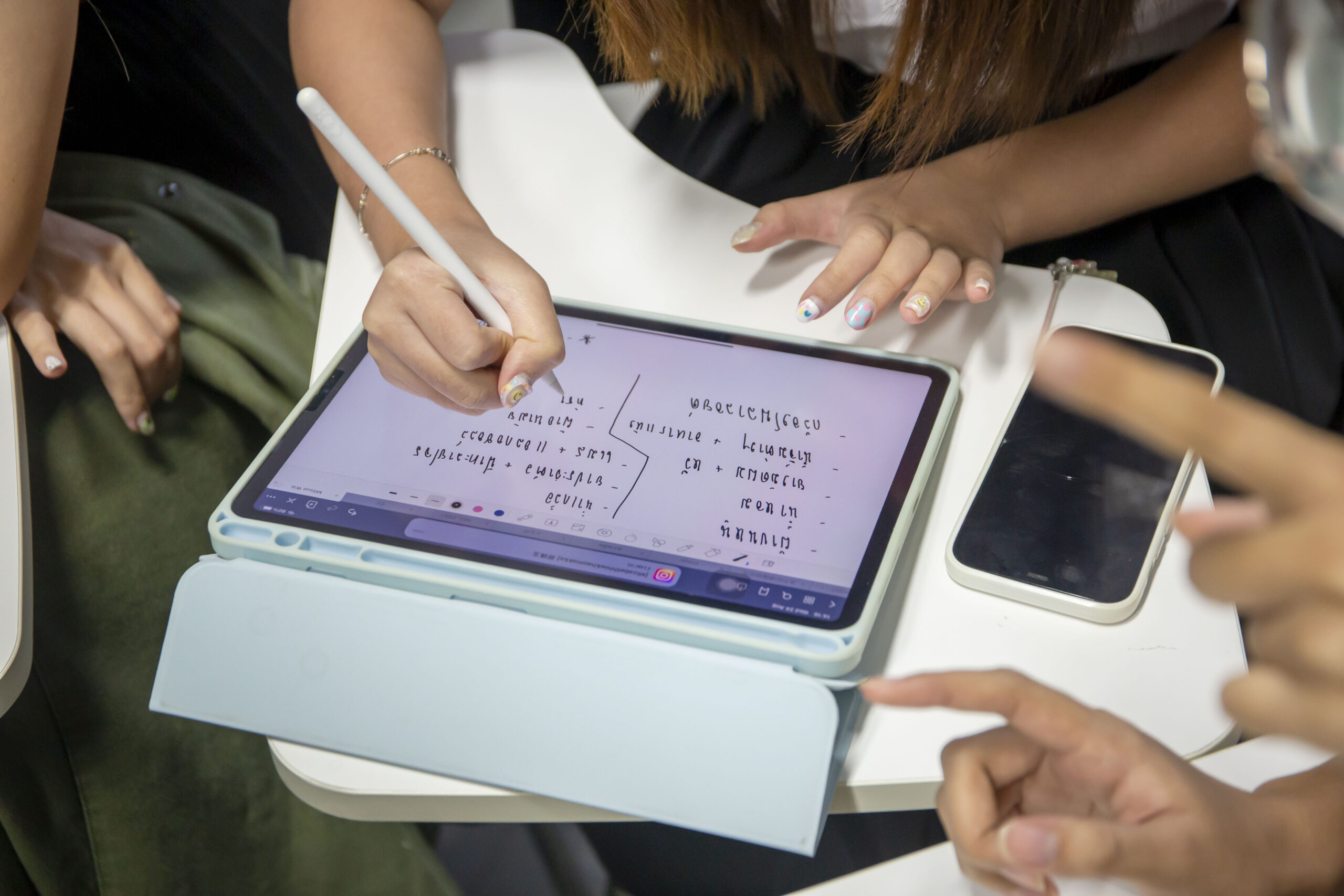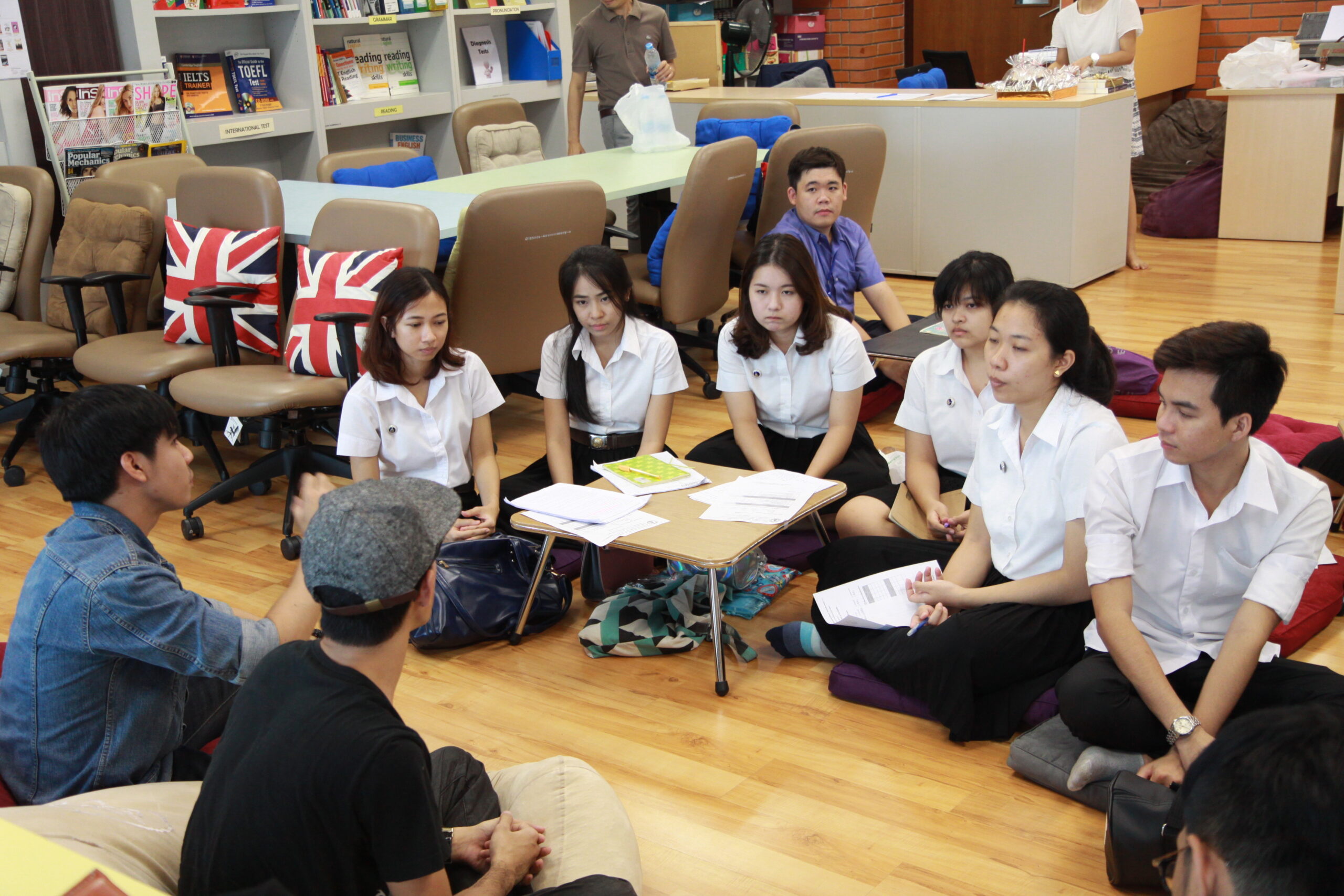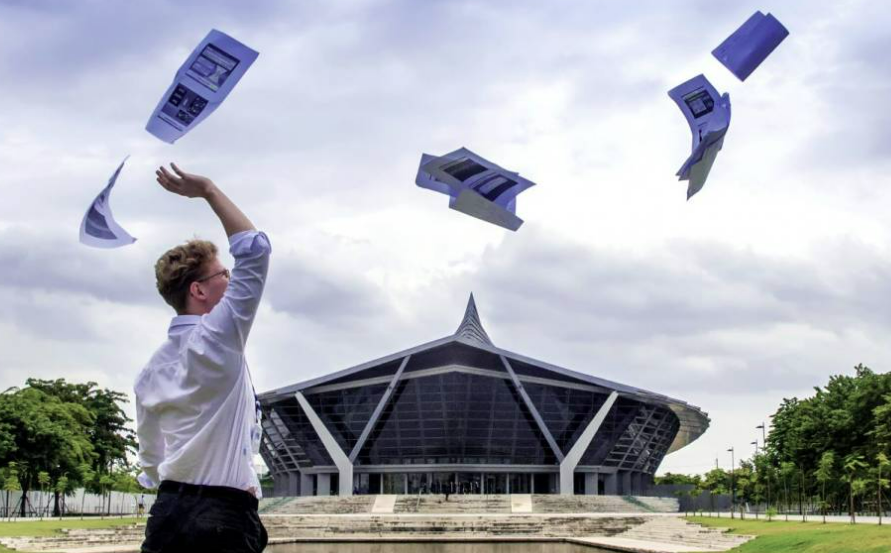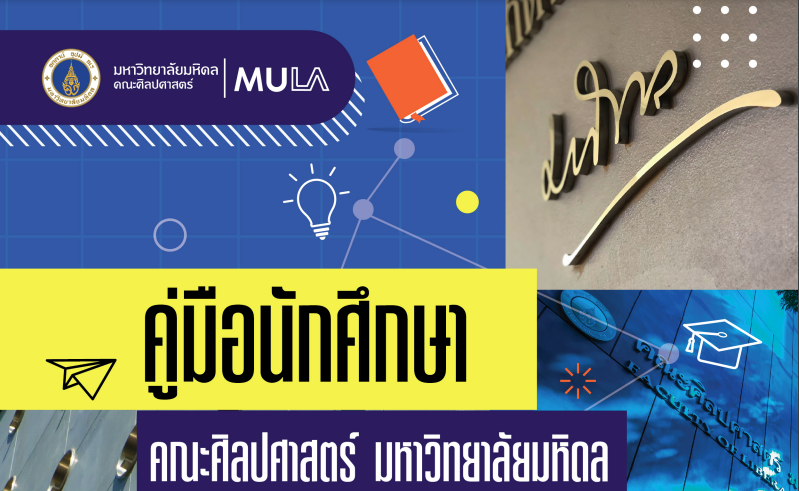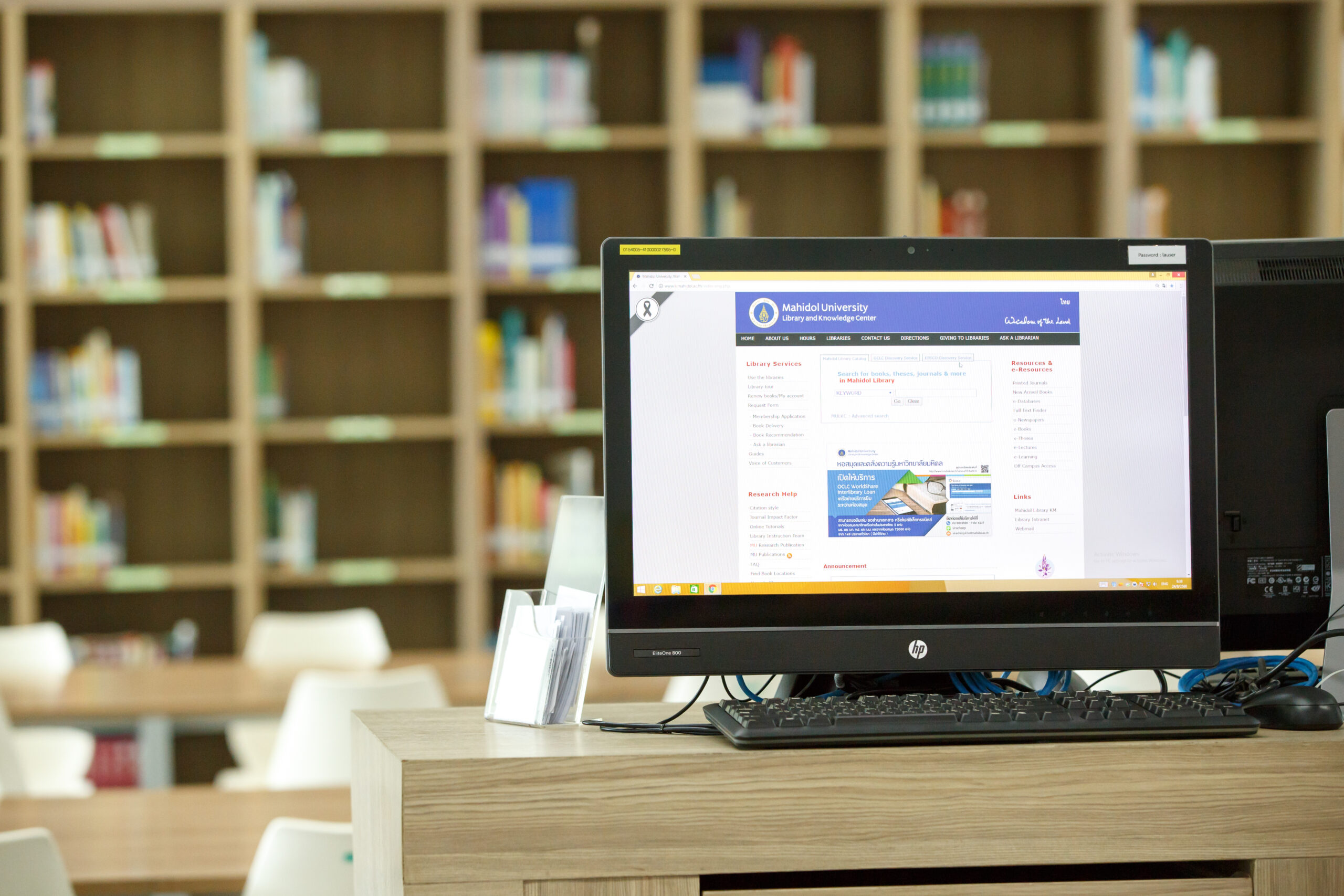Bachelor of Arts Program in English
Program in English
- Bachelor’s Degree Program
- Program Overview
- Program Characteristics
- Future Higher Study and Career
- Program Philosophy
- Generic Competences
- Program Learning Outcomes (PLOs)
- TQF2
Program Name
Bachelor of Arts Program in English
Degree offered
Bachelor of Arts (English)
Type of the Program
Academic (non-professional)
Total Credits Required
No less than 126 credits
Program Duration
This program is a 4-year program (see the Thailand Qualifications Framework for Higher Education (2022)
Program Status
The present program has been revised from the B.E. 2561 program and has been in operation from the first semester of academic year 2022.
Degree offered
Single discipline degree
Institution
Mahidol University
Goals
The Bachelor of Arts Program in English strives to produce graduates who will possess an excellent command of English and a set of desirable attributes in accordance with Mahidol University’s missions in order that they will be able to pursue a future career or higher studies and also make contributions to the society.
Objectives
Upon completion of the program, students are expected to have the following qualifications:
- Mastering the English language, being able to communicate fluently and effectively and being well-informed about theory in English study, including its linguistics, literature, and translation
- Being able to apply the accumulated knowledge and skills to make contributions to serve the society
- Working with others both as a leader and team member with a respecting and multicultural mind
- Accessing and applying appropriate data and technology in an effective and ethical manner in order to undertake study and research, which will in turn help enhance their lifelong learning
- Conducting themselves in accordance with the society’s rules and regulations, morality codes as well as any pertinent academic or professional ethics
Program Specifics
- The program possesses a vast and in-depth body of knowledge in all aspects of English language including language skills, literature, linguistics and translation study, ready to prepare its students for their future pursuit of a career or higher study as well as their embarkation on making contributions to the society as a decent global citizen.
- The program offers different minor subjects where students can expand and build further their major study of English language. Minor subjects include teaching Thai as a foreign language, psychology, and other foreign languages such as Chinese and Japanese. Students are free to choose any.
- The program promotes overseas experience by offering students ample opportunities to study or do activities in its partner institutions in various countries such as UK, Australia, China, Japan, Taiwan and Korea.
Term System
Run in a two-term system
Possible Careers
- Academic: English language instructor, academician, proofreader
- Translation: translator
- Services: staff in tourism and hotel industry
- Mass media: editor, news reporter and writer, content creator
- Foreign affairs: foreign relations officer, corporate liaison
Higher Studies
Graduates can pursue a higher study in various fields such as English language, English literature, comparative literature, translation and interpretation study, linguistics, communication arts, education, human resources study, data management and business administration.
Philosophy
The BA in English program applies the constructivist theory in teaching and learning by which greater emphasis is placed on the learning, i.e. learning- centered, and so students are promoted to acquire and further skills and knowledge on their own, geared to achieve the learning outcomes set by the program, i.e. outcome-based, and encouraged to make contributions to the society (community-engaged). These expected attributes in students are to be developed in accordance with the Thailand Qualifications Framework for Higher Education (2022) and Mahidol University’s missions. More specifically, students from the program will have an excellent command of English and can apply it with other disciplines for the benefit of themselves and others, and live their life qualitatively and ethically.
Strategies in Teaching
To achieve the set learning outcomes, the program incorporates the following methods of teaching into the courses:
- Interactive lectures and discussions to promote students’ deeper understanding of the knowledge along with higher critical thinking ability
- Demonstration and instructor-guided practice to ensure students’ practical ability
- Eclectic approach, such as problem-based, case-based, and project-based, to provide students opportunity to apply knowledge in different virtual and real situations
- Hybrid classrooms where technology will be used to facilitate learning and promote their digital literacy
Strategies in Student Evaluation
Students’ performance in individual courses is evaluated by the evaluation system which:
- Corresponds to the set learning outcomes and has various formats such as multiple-choice tests, practice, reports, projects, behavioral observation and portfolio
- Has a clear standard and criteria to unsure test reliability and validity through standard techniques such as rubrics
- Uses both formative and summative evaluation as well as authentic assessment
- Uses the criterion-referenced assessment and follows what is described in the course syllabus
Generic Competences
- Communication: students can effectively communicate in a wide range of contexts, including everyday and professional settings
- ICT: students can choose and use appropriate data and technology to serve their study or future career purposes
- Critical thinking and analysis: students can find solutions to their own problems or those of others by way of critically identifying the problem, gathering necessary data, analyzing data and evaluating the situation
- Creativity: students can create an original work which serves the society’s needs
- Collaboration: students can work with others with a respecting and multicultural mind
- Ethics: students live their life in accordance with the society’s rules, regulations and moral codes
- Global awareness: students keep track of current trends and can adapt themselves to any changes
Subject-specific Competences
- Knowledge and theories: students can explain key concepts and theories in English language and apply them to conduct basic research and pursue a future career. These include theory in English linguistics, literature, communication skills, and translation study.
- Communication: students can effectively select the form and mode of communication for different conversation partners and situations and effectively communicate with them.
- Creativity and integration: students can create an original work from their accumulated knowledge of English, either communication, linguistics, literature, translation, or a combination of these, which is to satisfy their own need and the society’s needs.
- ICT: students can choose and use appropriate data and technology to serve their study purposes during the course of study.
- Collaboration: students can work with people from different backgrounds using English and applying cross-cultural communication theory to communicate with them.
- Ethics: students are fully aware of the social manner and conventions when communicating with others in English as well as behaving appropriately.
Program–level Learning Outcomes (PLOs)
Upon completing the program, students will be able to:
- PLO1: Effectively communicate in English with accuracy and fluency equivalent to the C1 level of CEFR
- PLO2: Analyze the developments, changes and current phenomena of English as a world language from the linguistic perspectives
- PLO3: Critique different genres of literary works based on literary theory and criticism
- PLO4: Translate as well as edit translated works from English into Thai and vice versa based on translation theory and ethical codes
- PLO5: Work with others and respect people from different backgrounds
- PLO6: Undertake a capstone project which serves the need of the society
- PLO7: Select and use data and technology for lifelong learning effectively and ethically
Minor-subject Learning Outcomes (PLOs)
Upon completing one of the following minor subjects, students will be able to:
- Language and Communication Study: Apply key concepts and theories in communication study to explain communicative phenomena in the society
- Teaching Thai as a Foreign Language: Apply knowledge of Thai language and culture and its pedagogical concepts for teaching
- Japanese: Communicate in Japanese in various contexts such as everyday life, education, and work accurately and appropriately according to Japanese culture
- Chinese: Communicate in Chinese in everyday situations accurately and appropriately
- History: Explain and make relations of theories in history study accurately
- Psychology: Apply concepts and theories in psychology to understand everyday situations accurately
- Philosophy: Apply concepts and theories in philosophy to explain and understand everyday and current situations accurately
Tuition Fee
Tuition Fee
- Included entrance fee for new students
- Included semester fee
- Included program fee
Scholarships
- Mahidol University Scholarships
- Mahidol University Emergency Fund
- Loan for Students in Need
- Educational Loan
- Faculty of Liberal Arts Scholarships
- Faculty of Liberal Arts Development Fund for Graduate Attributes
Honors and Awards
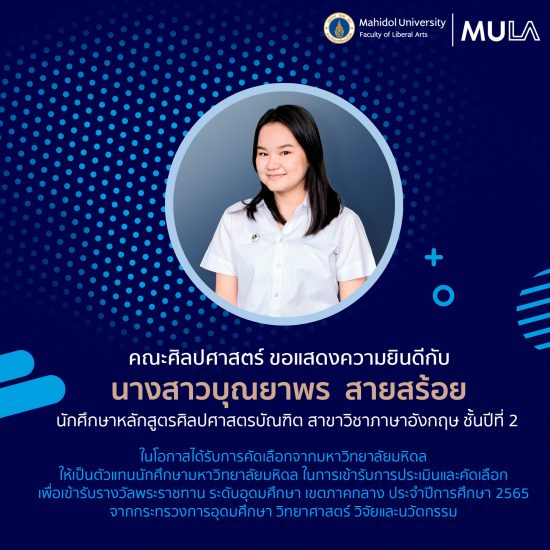
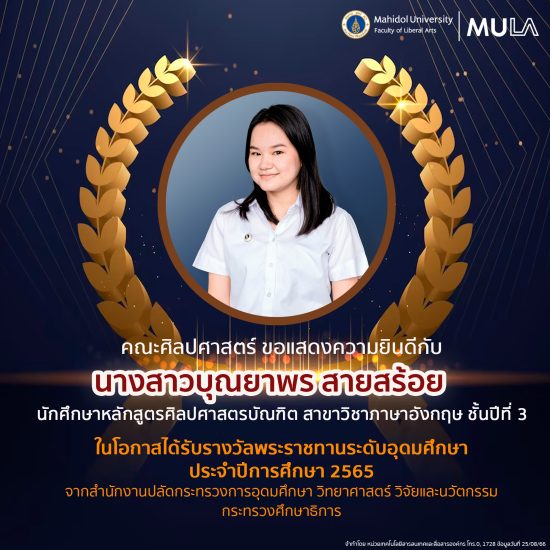
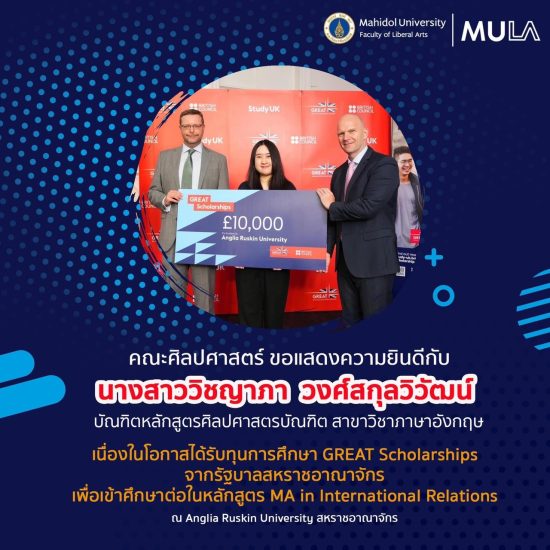
Alumni Testimonials
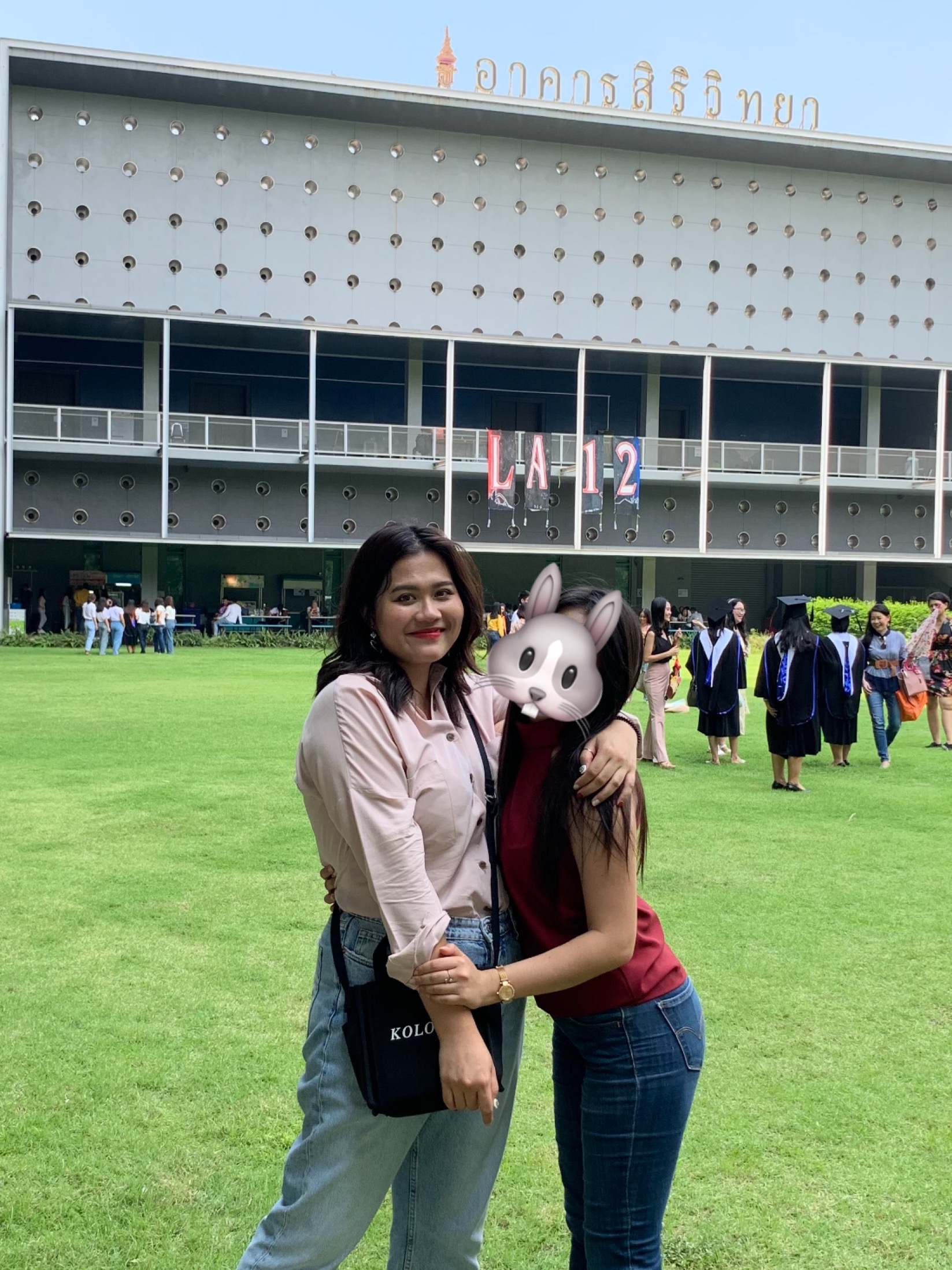
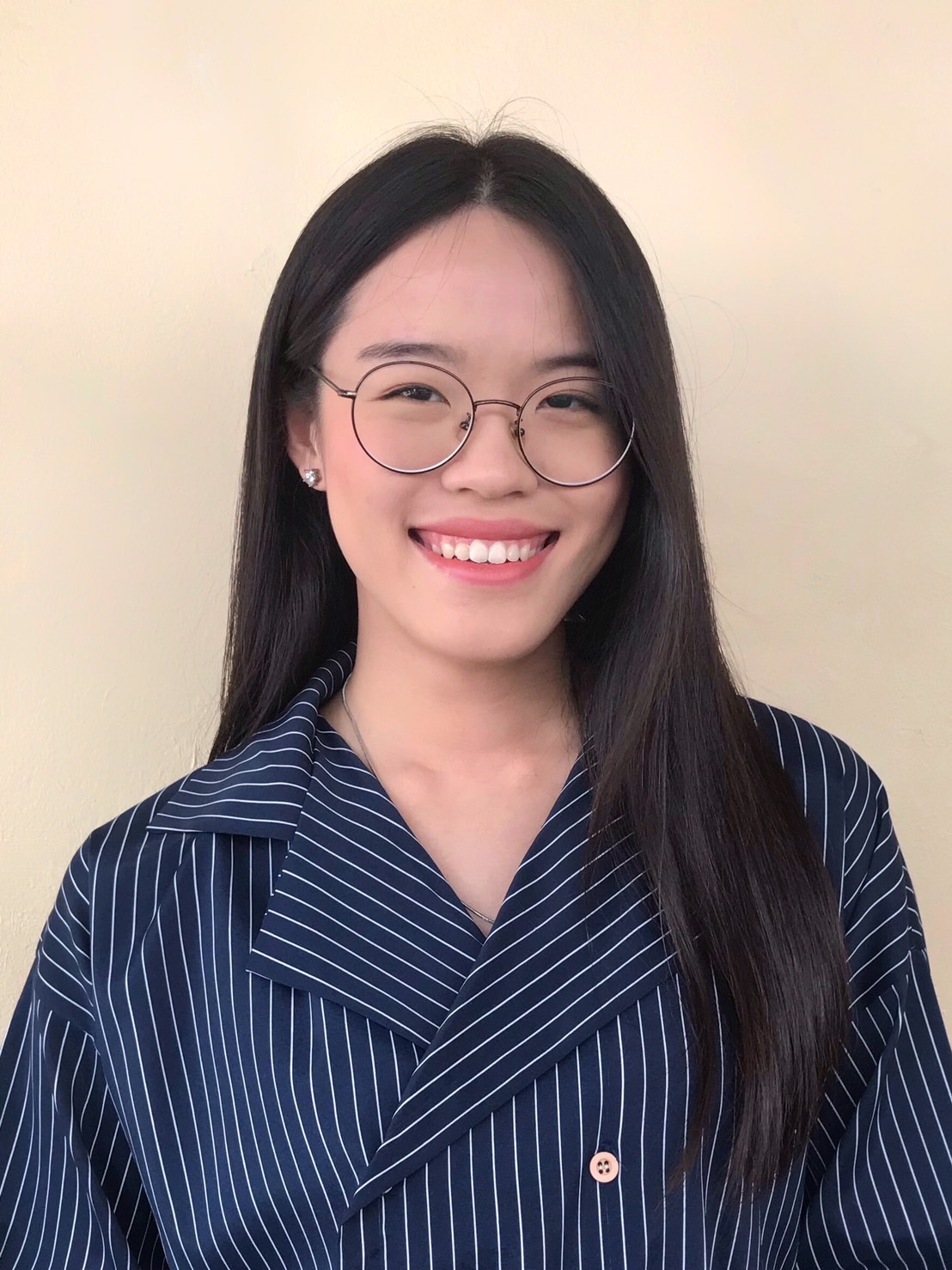



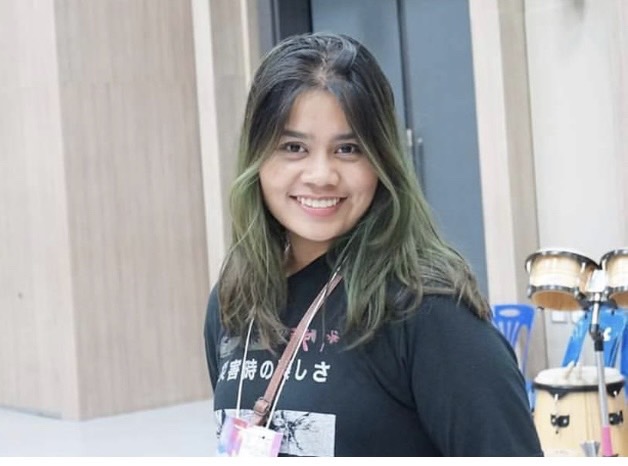
For Further Information
Academic Affairs
- Khun Somruetai, Khun Sangobsuk
- Tel: 02-441-4401-8, ext 1739, 1102

